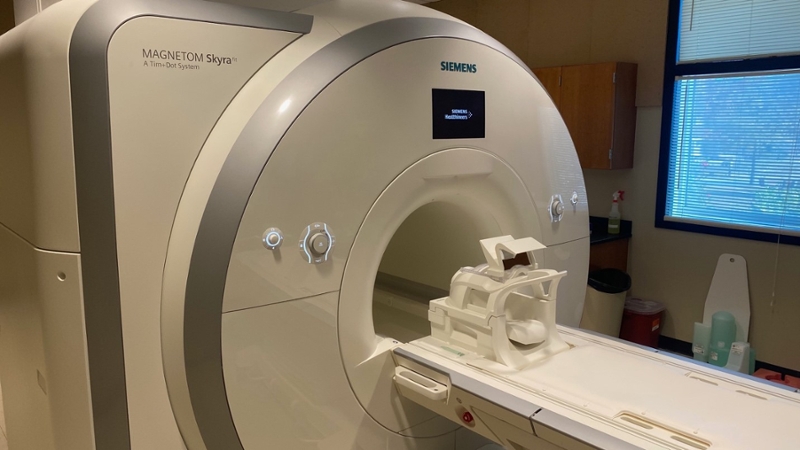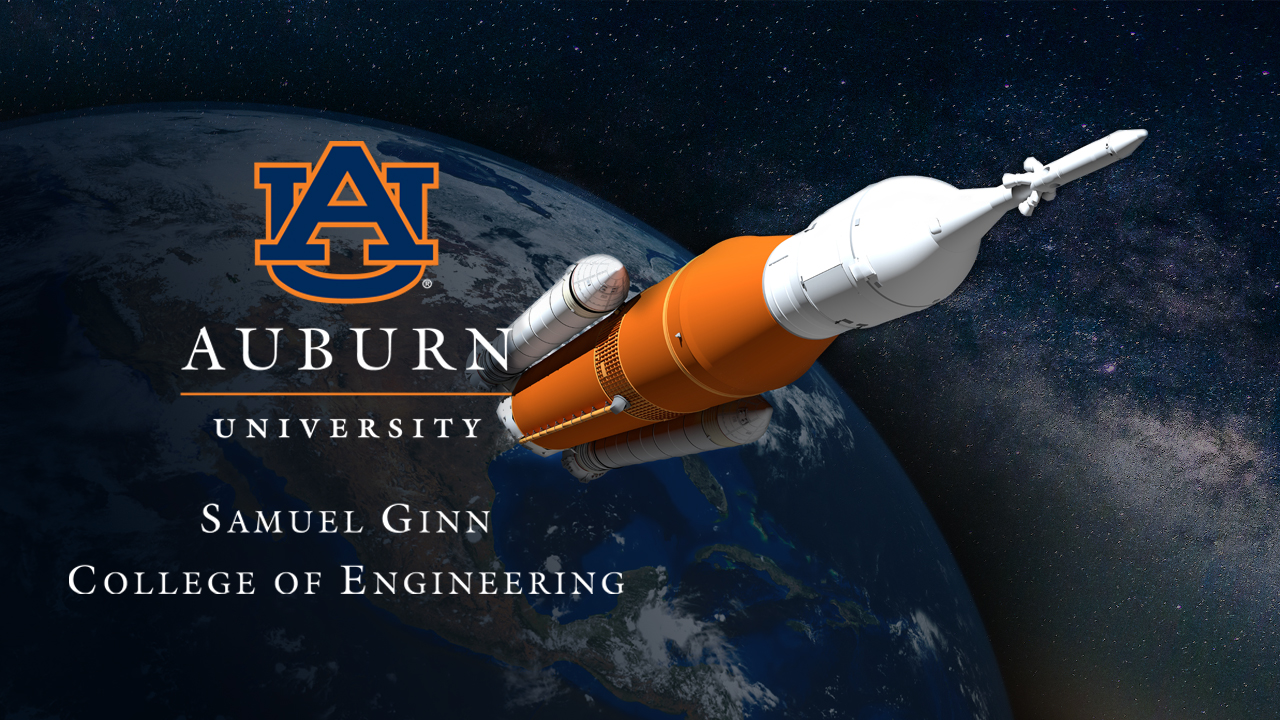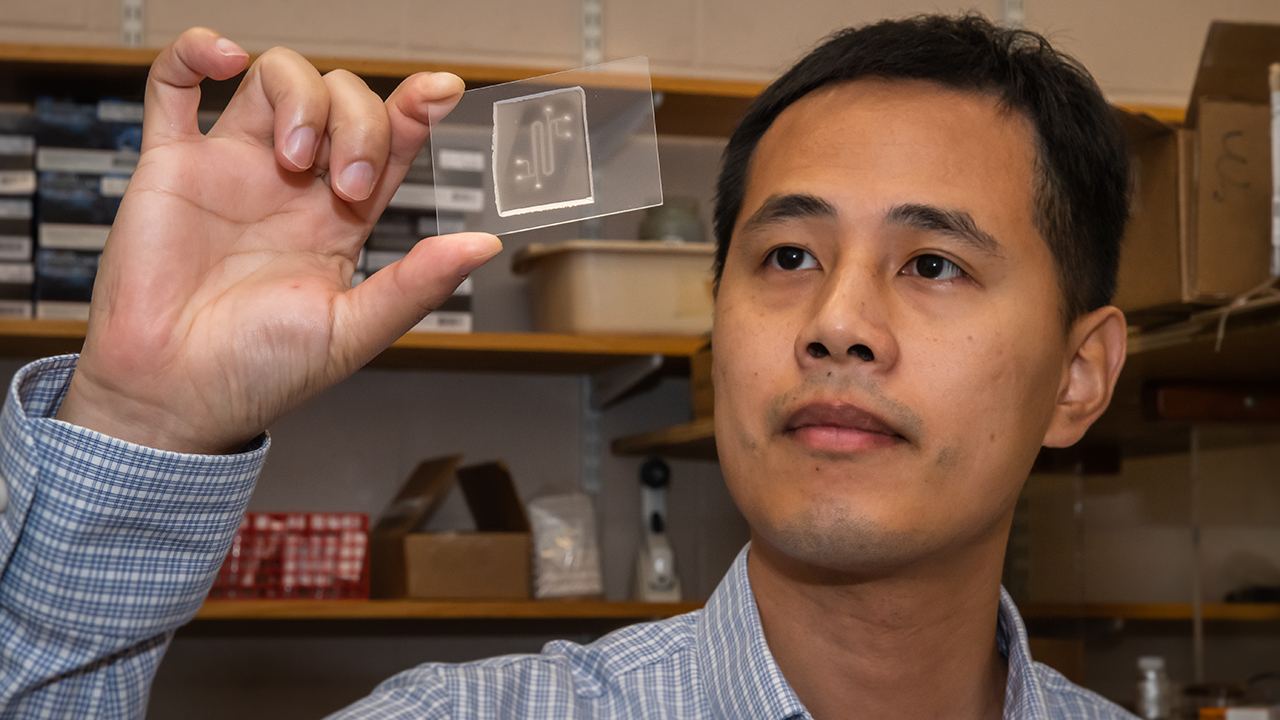Advanced Manufacturing and Materials
Additive manufacturing, or 3-D printing, are redefining all aspects of our lives. Although additive manufacturing has been around for decades, technological advancements have led to new interest in this technology throughout the industry. Through a process involving fabricating components by joining materials such as plastics or metals layer-by-layer from a sliced 3-D computer-aided design model, Auburn engineers are examining how manufacturers can 3-D print complex components on site, thus reducing the supply chain, eliminating waste and maximizing profits. With the Center for Industrialized Additive Manufacturing established, researchers are collaborating with companies to evolve the future of this industry.
Infrastructure and Transportation
Our nation's transportation system is among the finest in the world. However, with challenges that include age, higher energy costs, increased congestion and reduced funding, there is much work to be done. Auburn Engineering is addressing these issues and defining the future of transportation through research, validation and technology transfer. Goals include highways that are durable, cost-effective and safe; vehicles with improved performance, fuel efficiency, energy options and safety; and transportation systems that are more efficient. Auburn is home to the world renowned National Center for Asphalt Technology and test track where pavements are tested under real-world conditions with emphasis on the use of recycled and environmentally benign materials.
Cybersecurity and Intelligent Systems
The efforts to safeguard against threats that are man-made or acts of nature are growing in urgency. Auburn Engineering researchers are working to develop technologies that enhance the security of people, property and information. This includes research in unmanned systems, missiles and satellites; hardened concrete and projectile proof materials; as well as unique expertise in modeling and simulation and power generating systems.
Auburn University has been recognized by the U.S. National Security Agency as a Center of Academic Excellence in Information Assurance Research and by the Federal Aviation Administration as a National Air Transport Center of Excellence for Research in Intermodal Transport Environments. In addition, Auburn is one of the 16 National Centers of Academic Excellence in Cyber Operations. Auburn Engineering faculty members also are developing the next generation of autonomous vehicles, air and ground, for enhanced national security and safer more efficient ground transport.
Energy and Environment
Protecting and improving our environment is critical for the next generation. Auburn is engineering new ways to utilize the waste stream from pulp and paper plants for biofuels, produce food more efficiently, improve gasification and gas-to-liquids technologies, and remove mercury, radioactive elements, oil and other contaminants from the environment. In addition, we are developing longer lasting electronics to control and improve efficiency of a wide variety of critical systems. Auburn has been recognized by the National Science Foundation with an Integrative Graduate Education and Research Traineeship grant to develop methods for the sustainable production of biofuels and chemicals.

Estuarine Environments Research Program
The Estuarine Environments Research Program (EERP), led by the environmental engineering group in Auburn University’s Department of Civil and Environmental Engineering, is conducting a multi-year study to better understand the physical and chemical behavior and fate of endocrine disrupting chemicals in estuaries.
Capturing Carbon
An interdisciplinary team of researchers is positioning Auburn University for a big future in carbon dioxide utilization and storage research while working toward an Alabama CO 2 Utilization and Storage Center.
Contaminant Control
Auburn is researching newly recognized environmental contaminants, such as per- and polyfluoroalkyl substances, which have not been studied sufficiently to determine their environmental impact and possible health risks.
Biomedical and Health Systems Engineering
Auburn engineers are developing unique technologies for more effective and cost-effective health care. Biomedical and health-care technology research is being performed in multiple departments, and includes improvement in magnetic resonance imaging (MRI) technologies, use of contact lenses for timed release delivery of medications, improvements in treatment regimens for heart failure and cutting-edge filters for emergency responders and buildings. Research on ways to improve the diagnosis and prognosis of breast cancer and heart failure patients is also ongoing. Our MRI Research Center is home to both 3T and 7T MRI units and works closely with regional medical providers. Research at the center is also addressing some of the health issues encountered by our soldiers in the battlefield.

MRI Research Center
The 45,000-square-foot Auburn University MRI Research Center houses two of the most powerful research and clinical magnetic resonance imaging (11RI) scanners in the world - a 3-Tesla MRI and a 7-Tesla MRI. This facility marks next-level research in engineering and medicine and spotlights innovative technology not only in Alabama but also internationally.
Contact Us
Auburn University's Samuel Ginn College of Engineering is one of the nation's top 50 institutions in research expenditures. Cutting edge research is underway in dozens of labs across campus, focused on producing technology and innovation that will help drive economic growth while improving human life on a global scale. With top-ranked programs in a variety of engineering disciplines, Auburn Engineering is committed to educating future leaders in science and technology.
Interested in partnering with Auburn? You can use our experts search to identify faculty working in areas of interest to you, or contact Steve Taylor, associate dean for research to discuss your needs: 334.844.2301 or taylost@auburn.edu.







